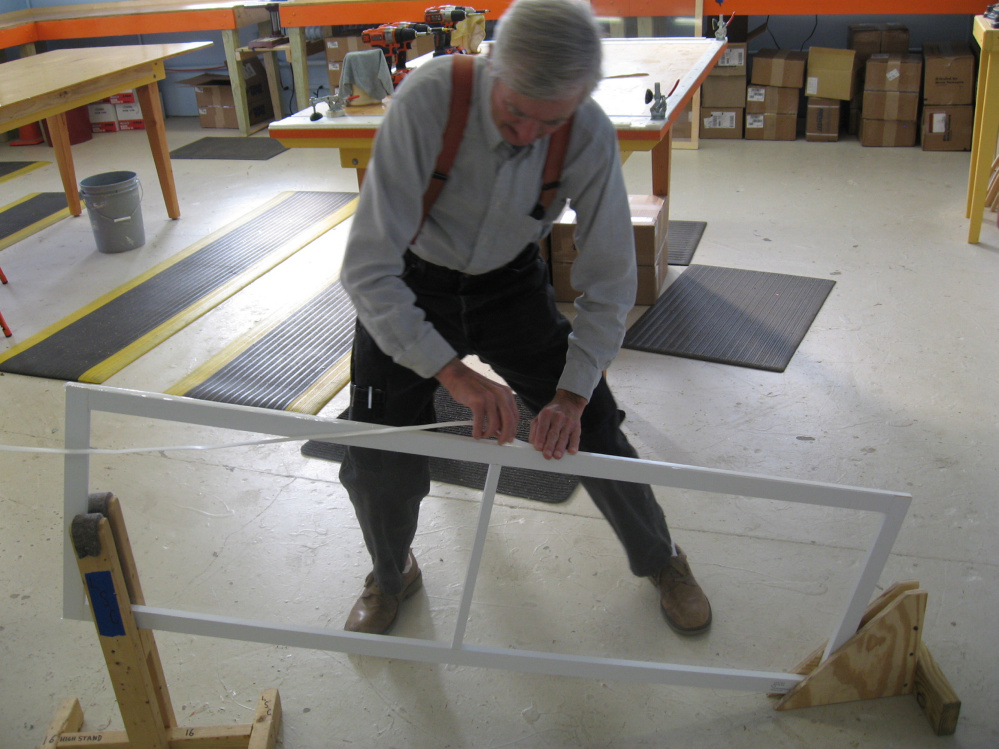Do you ever read the kind of ad that might say, “Ten Secrets Your Doctor Doesn’t Want You to Know”?
You might, because psychologists have determined that people are more likely to read anything that promises to reveal a secret. We are also more likely to read an ad that tells us a certain number of ways to do something, as in “Roundworms and Tapeworms: Five Pleasant Ways to Deworm Your Cat” or “Ten Ways to Save on Your Oil Bill This Winter.”
Although your prize-winning coon cat might require attention year round, this is the season most Maine people would eagerly read an ad that promised to save them money on heating bills.
True, we all have friends who march to a different drummer. They can’t wait to chip ice from their doorsteps. We are talking here about poets who hope trees will drop on power lines so they can sit by their woodstoves, sip herbal tea and read by candlelight for three days.
Most poets probably dislike reading by candlelight next to a woodstove. It is even more likely that they are revolted by the nasty taste of herbal tea. They endure this ritual for the sake of two pages of blank verse and the opportunity to bore you to tears by bragging about it later.
If you stop and think about it, you have never seen a poet out in the dooryard on a January morning, freezing fingers while changing the oil in a ’91 Nissan pickup. These affluent reclusive poets will tell you that they revel in the tranquil beauty of what you’d call a nasty Maine winter.
In the same bag we find the artists. Within a period of two years, two artists – who live right here in St. George, Maine – designed White House Christmas cards for our president. Artists love winter.
If a Vesuvius were to erupt on Monhegan today, Maine artists (unfamiliar with Pliny the Elder) would rush out there, palettes in hand, hoping to turn misery to advantage. So your plow man and your basic Maine artist can’t wait for the first miserable flake of snow to fall.
Your friendly oil dealer also loves our bitter cold Maine winters. He relishes every uninsulated wall in your 200-year-old house. When he thinks of the icy wind that blows in through the cracks around your windows he smiles, leans back in his leather chair and pours himself another glass of cabernet sauvignon.
Every one of these people who profit from your suffering will tell you that Maine winters really aren’t bad: You just happen to be in the wrong business.
That said, did you know that this very minute, there are a handful of dedicated volunteers in Maine who are working to lower your energy bills? Their organization is called Window Dressers; they make a low-cost, high-quality, reusable interior storm window, and you can learn more about them online (at windowdressers.org) than you will read here.
Indeed, the less I say about Window Dressers, perhaps the better off they will be. I’ve been volunteering there for a couple of months, and when I mentioned my intention to publish my observations, someone cried out, “Please don’t. Some people might believe it.”
You can read online how the gentleman who started Window Dressers was moved to action one day when he was in church. He felt a draft on his neck and realized that his discomfort came from the cracks around a nearby window.
Faced with plugging the leak in the window or giving up Sunday service, the salvation of his soul triumphed and he built interior reusable storm windows. Parishioners saw them, pronounced them good and wanted some of their own. A nonprofit initiative was born.
My neighbor, Barbara, invited me into the Rockland plant, where she quickly forced a roll of sticky tape into my hand. I was surprised that I could stand in one spot for three hours and put sticky tape on the edge of a wooden frame that was to become a “low-cost, high-quality, reusable interior storm window.”
Because I have difficulty finishing any project I start, helping out at Window Dressers is fun for me. There are between nine and 12 steps that go into the production of each window, and at my work station I just do one of them. I can quit any time and let someone else finish it.
One out of every four windows made is donated to a low-income family lucky enough to live in an old house.
Hopefully, what you have read here has piqued your interest to the point that you will visit one of the Window Dressers plants. You will be glad you found out for yourself what this inside-storm-window business is all about.
Were you to critically evaluate the statewide efficacy of the program, however, you would be faced with a very thorny question: If Window Dressers is really and truly helping many of Maine’s neediest residents, why hasn’t the governor tried to shut it down?
The humble Farmer can be seen on Community Television in and near Portland and visited at his website:
www.thehumblefarmer.com/MainePrivateRadio.html
Send questions/comments to the editors.



Comments are no longer available on this story